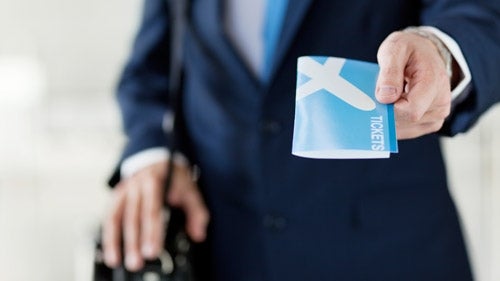
A business trip is a good opportunity to do productive work for your business while earning substantial deductions. But it’s important to know the rules and limitations of deductions for business trips. You need to be aware of what constitutes a business trip, what things are deductible, and what you need to do to support your claims. You can combine business trips with pleasure trips, but be careful to ensure your trip still qualifies.
• A day you spend traveling to a business destination (on a reasonably direct route);
• A weekend or holiday sandwiched by business days; and
• Weekend stay-over days necessary to save transportation costs.
What Travel Expenses Are Deductible?
If a trip qualifies as business travel, then transportation costs are completely deductible. The transportation expenses are whatever it costs you to get to and from the destination, whether or not you stay overnight. Other expenses are also deductible. If you have to stay overnight, or long enough to require sleep, then your meals and lodging are deductible. On the other hand, if you travel overnight, then any meals you need are deductible, but only at 50% of their cost.
If you travel with your family, make sure to separate deductible expenses from non-deductible ones. There is no deduction for travel expenses for spouses or dependents, unless it meets three conditions: the spouse or dependent must be an employee; the travel must actually be for business purposes; and the expense would be deductible. When family members accompany you and are not deductible, your deductible total is based on the amount you would have spent if you were traveling alone. In some cases, there is no difference, while in other cases there is. For example, automobile travel will still be deductible in full, because adding a second person does not add cost. For lodging, however, if a second person adds expense to the room, you are only able to deduct the cost of one person, and not the extra charge for the second person.
How Do You Support Travel Expenses?
Here are some requirements for substantiating deductions for business travel. Keep receipts for all lodging expenses. For any non-lodging expenses, save receipts if they are for more than $75. In fact, you’ll probably benefit from keeping all your receipts, even those for less than $75, because the receipts will remove any doubt. In addition to saving these records, you should also keep a tax diary that explains all your expenditures during the travel. Make sure to include the amount you spend and the schedule of your expenses, the dates of your departure and return from the trip, the number of days you spend doing business, the details of the places you travel, and an explanation of the business reason for the travel.
5332 Views











